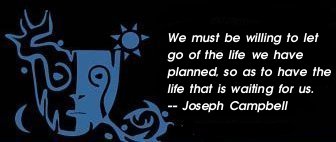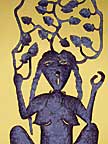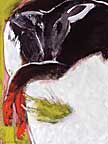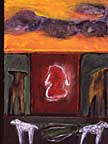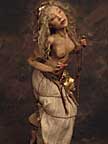|


"Thanksgiving Myths"
Dr. Bradd Shore in conversation with
Mary Beth Kirchner
from the PRI/NPR radio documentary
Mythic Journeys
Bradd Shore, Ph.D. is a cultural anthropologist, author, professor, and the director of the Center for Myth and Ritual in American Life (MARIAL) at Emory University. An insightful, challenging, and charismatic speaker, Dr. Shore is the author of Culture in Mind: Cognition, Culture, and the Problem of Meaning, Sala'llua, and What Culture Means, How Culture Means. Shore's directs over twenty research projects around the country with middle-class working families. Holidays, births, deaths, weddings, milestone birthdays have a powerful role in human life. Shore believes that the study of ritual in working families is an extremely sharp lense through which to understand contemporary American life.
Mary Beth Kirchner is an independent radio producer and national programming consultant in Los Angeles. With an extensive record of accomplishment in public broadcasting, she has received over fifty national and international awards. Over more than two decades in public radio, she has worked with National Public Radio, Public Radio International, Carnegie Hall, Wolf Trap Foundation for the Performing Arts, BBC, Western Folklife Center, Dana Alliance for Brain Initiatives, Asia Society, NHK (Japan's public broadcaster) and ABC News Nightline, among many others.
Shore: The job of making family culture is the primary, unheralded responsibility of parents. Every parent discovers, 'Not only do we have to put food on the table, provide a place for the kids to live, get them to school — we have to construct a family culture!' Every family has its own little style of being a family.
Thanksgiving is perhaps our most significant family ritual. Anthropologists would call it a Rite of Re-aggregation; that's the fancy term. It's a ritual where a group that has been dispersed gets to come back together and reassert its power. In this case, Thanksgiving is the ritual in which people come to eat together for the family meal that we're missing so much. As they develop and grow, American families generally disperse. Because of that, its extremely important that, periodically on a regular basis, the family comes together to 'be a family' again.
Kirchner: I suppose that there are many rituals within the ritual?
Shore: Let's take the Thanksgiving dinner. There's a lot of variation in Thanksgiving dinners. As an anthropologist, I actually asked a class of mine for two things: 1) "Describe your typical Thanksgiving dinner and all the foods that you have," and then 2) "Tell me your ethnic background." What came out was very interesting.
There's a national component — the meal — which symbolizes our unity as Americans, and that's generally the turkey, cranberry sauce, and some kind of sweet potatoes. But then you begin to find out that people also mark their ethnic or regional distinctiveness by another component of the meal. "Well, we have turkey and my grandmother's brisket." Or, "We have turkey and we always have lasagna." The meal was marking a national component, but also symbolizing what we share as a smaller community.
Then I discovered that there was another component to the Thanksgiving dinner... "My grandmother's famous Jello™ mold." It was always something that wasn't fancy. It was some kind of home cooking, but it was always identified as attached to a particular person. Those dishes were unique, defining not the nation, not the ethnicity, but the individual family as a unique unit. Every level of our identity is played out through just one meal, the Thanksgiving meal.
Kirchner: So, help me better understand Myth within the context of Thanksgiving.
Shore: If we step back from it, as an anthropologist would, and ask the question, "What does the word 'myth' really mean?" we realize that we're doing myth-making all the time. What makes a story a myth is very puzzling. If something is just taken as a factual account, we tend not to think of it as a myth. But if something is a lie, we don't call it a myth either. The only things that we call myths are stories that are truths in fictional form. That is, they are things which have a peculiar, paradoxical mix of fact and fiction. I call myths human truths clothed in local fiction. The dinner table in general, and the big dinner table at Thanksgiving, is very often the place where family stories are told. Now, these stories are myths in the sense that we all know that, as we tell these little family stories, we embroider them.
In the South, I found something very interesting... that when I've talked with families, they love recounting stories about eccentric relatives. What's interesting is that eccentric relatives can never be Father or Mother. They have to be Uncle or Aunt. These eccentric people give the family a sense of its eccentric distinctness. They're not BIG Myths, but rather what we would call 'little myths' — the small tradition of 'myth-making' with the little 'm'. But in some ways they turn out to be more important than the big ones. The myths and the ritual that we don't notice, turn out to be the shapers of our sense of who we are and where we come from, even more than the ones that we're aware of...the BIG ones. Thanksgiving is not a forum for the retelling of the same story. It's a forum to eat together so that we can start talking. It's the engine which makes myths happen in an on-going basis so that, when we talk together and eat together, we begin to share stories.
Return to Passages Menu
|
